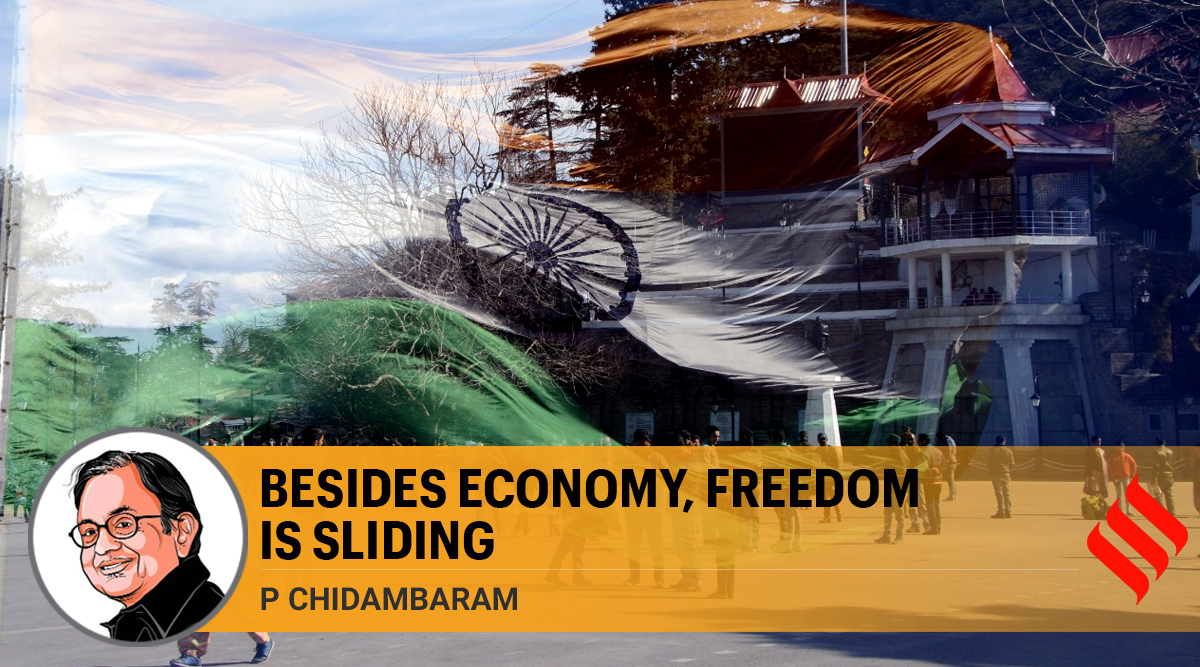
Whether the Indian economy is on the road to recovery or not is a matter of debate. The government is ‘celebrating’ the NSO estimate of 0.4 per cent growth in the third quarter. Allowing for statistical errors, 0.4 per cent could mean either Zero per cent or 0.8 per cent. The government has also glossed over the caveat entered by the NSO in its press release that “Estimates are likely to undergo sharp revisions”.
We want the economy to revive quickly and attain, at least, the annual GDP (in constant prices) of Rs 140.03 lakh crore estimated for 2018-19 or Rs 145. 69 lakh crore estimated for 2019-20. Those are the two years of rapid decline in the growth rate, yet we achieved positive growth of 6.1 per cent and 4.0 per cent, respectively. The next year, that is 2020-21, was when the pandemic hit the country, aggravated the wounds inflicted by incompetent economic management, and caused a recession — the first in 40 years. According to the NSO, the year will end in March 2021 with a GDP (in constant prices) of Rs 134.09 lakh crore, i.e., -8.0 per cent over the previous year. It could be worse.
Recovery with riders?
Meanwhile, the temporary respite of 0.4 per cent growth in Q3 comes with several worrying deductions based on the estimates for the whole year, 2020-21:
1. The growth is entirely attributable to the 3.9 per cent growth registered by ‘Agriculture, Forestry and Fishing’ and 6.2 per cent by ‘Construction’. The slump in Mining, Manufacturing and Trade, Hotels & Transport continues.
2. Gross Fixed Capital Formation (GFCF) at Rs 41,44,957 crore is lower than it was in 2018-19 and 2019-20. As a proportion of GDP it is 30.9 per cent.
3. Exports are at Rs 25,98,162 crore and imports at Rs 27,33,144 crore, both lower than they were in the previous two years. As a proportion of GDP they are 19.4 per cent and 20.4 per cent.
4. The per capita GDP has fallen below Rs 1 lakh to Rs 98,928. The obvious conclusion is that while every one has become relatively poorer (except the billionaires whose number increased by 40 in 2020), many millions have been pushed below the poverty line. Those already below the poverty line have been pushed into destitution and, very likely, more indebtedness.
5. The recession and the pandemic have consequences beyond the economy: they have severely affected the education, nutrition and health of the people, and the impact must be more severe on the poor and their children.
RBI is more cautious
The RBI has been more candid in its assessment of the ‘State of the Economy’.
Despite an uncritical endorsement of the Budget and other measures taken by the government, the article on the subject in the February 2021 bulletin reached the following conclusion:
“There is little doubt today that a recovery based on a revival of consumption is underway. The jury leans towards such recoveries being shallow and short-lived. The key is to whet the appetite for investment, to rekindle the animal spirits. All engines of aggregate demand are starting to fire; only private investment is missing in action. The time is apposite for private investment to come alive… Will Indian industry and entrepreneurship pick up the gauntlet?”
Amidst a shallow and short-lived recovery and private investment missing, any celebration is totally premature. We must await the estimates for Q4 and for the whole year as well as the indicators for health and education.
Freedom is diminishing
While we keep our fingers crossed on the economic situation, there is bad news on another front. India’s rank has slid in the indices of freedom. In the World Press Freedom Index, India ranks 142 out of 180 countries and, in the Human Freedom Index, India is at 111 out of 162 countries. Freedoms in India have reduced, according to a US think tank, Freedom House. India’s score has slipped from 71/100 to 67/100, downgrading it from ‘free’ category to ‘partly free’.
The particular rank or number is not important; what is important is the slide in perception and the impact on the lives of millions of people. Can it be denied that the media has been tamed into submission and that large sections of the media have become like vintage HMV record players of the ruling party and the government? Can it be denied that crimes against women, Muslims, Christians, Dalits and Scheduled Tribes are on the rise (NCRB data) and that such crimes are being committed with impunity? Can it be denied that Muslims are being scapegoated for everything from terrorism to the spread of coronavirus? Can it be denied that the Central government has become more authoritarian, criminal laws more repressive, tax laws and tax administration more intrusive, the police and investigating agencies more oppressive, and economic policies more biased towards the rich and potential monopolies? Can it be denied that the pervasive sentiment is fear? The latest shocker is that a cabal in Delhi had plotted on how to “neutralise” people who wrote against the government and spread fake news.
A declining economy and diminishing freedom make for an explosive combination. The slide must be arrested. The farmers of Punjab, Haryana and Uttar Pradesh have chosen one path of resistance. The voters of Assam, West Bengal, Kerala, Puducherry and Tamil Nadu have another path before them.
"freedom" - Google News
March 07, 2021 at 10:03AM
https://ift.tt/3ehlbLU
Besides economy, freedom is sliding - The Indian Express
"freedom" - Google News
https://ift.tt/2VUAlgg
https://ift.tt/2VYSiKW
Bagikan Berita Ini















0 Response to "Besides economy, freedom is sliding - The Indian Express"
Post a Comment